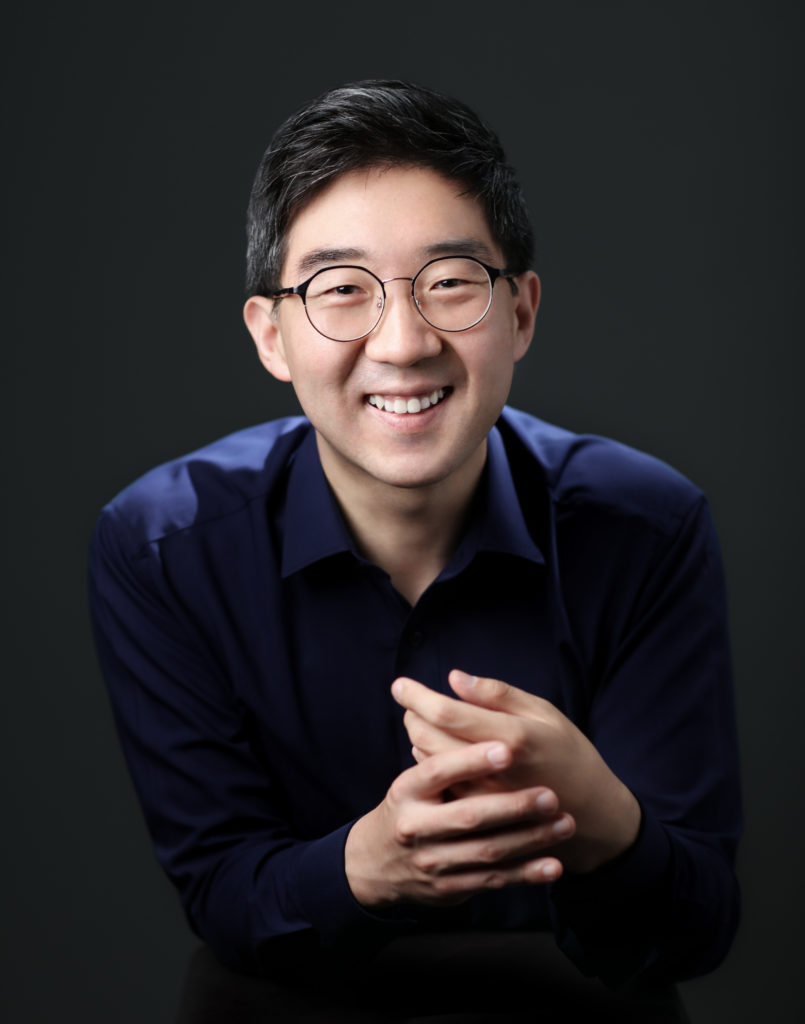
Beseeching (2020)
from the composer
While discussing the concept of this new piece with Matt and Jeffrianne, the West Coast was grappling with a terrifying set of wildfires. It seemed natural for me therefore to think of composing a piece about longing (not hoping but desperately longing – therefore ‘Beseeching’) for the rain – and the wellness of the humankind and the earth we live in. The darkness of von Heyl’s Primavera (and that of Botticelli’s), which I saw months after our initial conversation, confirmed that I happened to be in sync with respect to the subject matter and the tone.
With the yearning quality and intensity in its core, ‘Beseeching’ interweaves two different traditions: Native-American rain dance drumming, which is alluded to in the very beginning of the piece, and old Korean melodies. The first Korean tune that appears after the introduction combines two court music melodies, both of which wish for the well-being of the people. Already mysterious and dark in the beginning, the music becomes even more intense, as the ‘ritual’ goes on. I thought Matt’s expressive high cello sound would be perfect to convey the depth of desperation. As if attempting to provide a glimpse of hope, the music ends with another Korean folk tune that is rather soothing, titled ‘Pungnyeon Ga’ (translated as ‘song of a good harvest’).
Exploring the future of chamber music in this era of isolation and inspired by many video clips of virtual ensembles that were coming during the pandemic, this piece, written for one cellist, has four different parts, including one that almost exclusively assigned to percussive effects. I was also encouraged by Matt’s interest in ideas that are out-of-the-ordinary. I hope my four-minute musical intercession speaks directly to our collective desire for a brighter future.
Beseeching is commissioned by The Primavera Project for Matt Haimovitz.
bio
Texu Kim is “one of the most active and visible composers of his generation,” (San Francisco Classical Voice), writing music that’s fun, sophisticated, and culturally-connected. Drawing on his personal affinity for humor, his background in science, and his fascination with everyday experiences, Kim’s work radiates positivity, offering “major-league cuteness” (Broadway World) while demonstrating “surprising scope” (San Diego Story).
As a Korean-American, Kim explores the localization of imported traditions, incorporating cross-cultural elements into his work in “impressive and special” ways, so that “many orchestras and conductors around the world are taking an interest in [his] music” (KPBS). By highlighting the interaction between folk culture and external influences, Kim creates meaningful depth while maintaining a signature playfulness and exuberance that is both listener friendly and engaging.
An impressive roster of international ensembles have programmed Kim’s music, including the New York Philharmonic, Los Angeles Philharmonic, Minnesota Orchestra, Detroit Symphony, New World Symphony, Oregon Symphony, National Orchestra of Korea, Seoul Philharmonic Orchestra, Ensemble Intercontemporain, Ensemble Modern, Alarm Will Sound, Ensemble Reconsil Vienna, New York Classical Players, AsianArt Ensemble Berlin, and more. Additionally, he served as the Composer-in-Residence of the Korean Symphony Orchestra (2014-18).
An assistant professor of music at San Diego State University and frequent collaborator with choreographers, filmmakers, and educators, Kim has received awards and honors from the Civitella Ranieri Foundation, American Modern Ensemble, Copland House, SCI/ASCAP, and Isang Yun International Composition Prize. In addition to the music accolades, Kim won a Silver Medal in the 1998 International Chemistry Olympiad. Kim earned his D.M. from Indiana University and prior degrees from Seoul National University.
